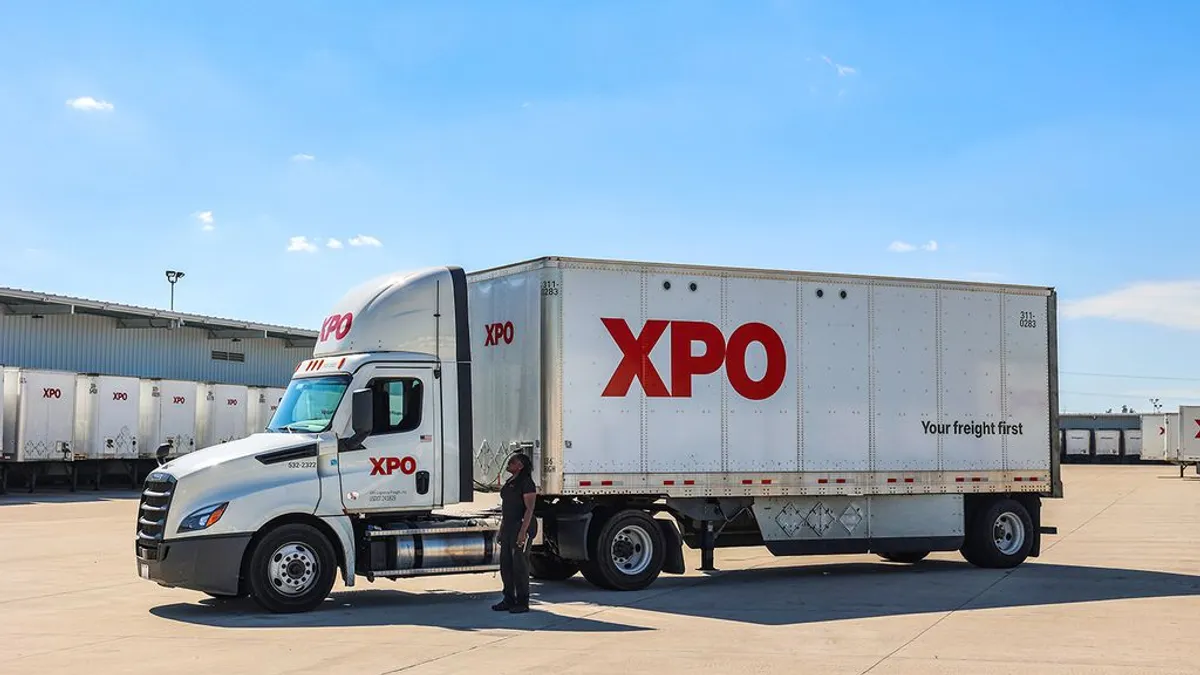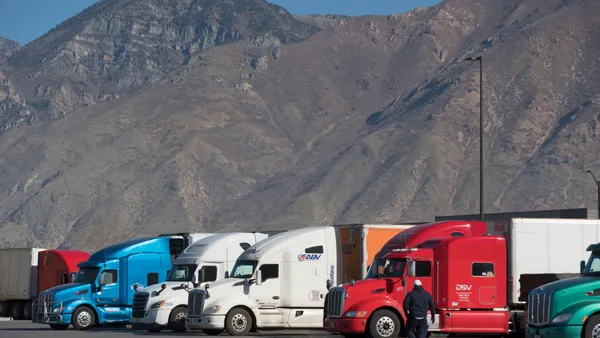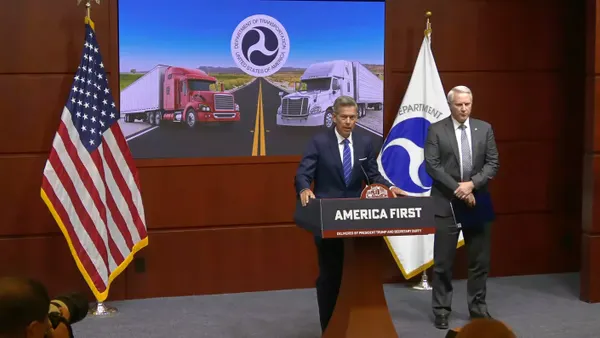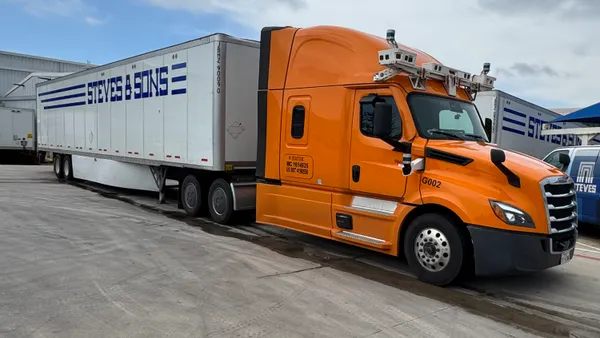Damon Ott, shareholder at employment law firm Littler, worked with carriers to prepare for California’s AB5 labor law before its initial planned implementation in January 2020. But as the law ground to a halt during a legal battle over the past two years, many continued to contract independent owner-operators in leaseback arrangements.
With the Supreme Court’s rejection of the trucking industry challenge to AB5 in June and the subsequent lifting of an injunction on the law, enforcement is poised to begin with the requirement that trucking fleets directly employ drivers. More fleets are opting to take the plunge and change their operations rather than face potential legal exposure, Ott said.
“The overall restrictions that are involved in a leaseback arrangement make it very difficult for a company to demonstrate that all of the factors of the business-to-business exception are satisfied,” Ott said. “Companies really need to know that the risk is very high.”

Transport Dive caught up with Ott by phone for an employment attorney’s perspective on what companies should be doing to ready their fleets for AB5’s enforcement.
Editor’s note: This interview has been edited for clarity and brevity.
TRANSPORT DIVE: What options do these fleet managers have when it comes to complying with AB5?
Damon Ott: First of all, the easy one: You can hire employee drivers with your own fleet. That's an obvious one, and that's the direction that the California legislature certainly wants companies to take.
The next one, starting at the top of the defensibility hierarchy, would be to operate as a pure broker, where you're brokering loads solely under your federal brokering permit to authorized motor carriers.
Some companies are capable of getting into that position. But a lot of companies have contracts with customers that the customer is looking for a carrier. There could be a shift in terms of customer expectation, where so many companies are going to be saying, "You know what, we are actually a logistics company, and we will get your load where it needs to go, but we're not a carrier. And so we can't enter into a contract with you that's going to require that we operate as a carrier."
What benefit might fleets reap from offering to hire independent contractors as employees?
Ott: It's a good idea in the sense that I think courts have traditionally — and agencies, as well — looked favorably upon presenting a choice. [Drivers] didn't get forced into any particular business model. In fact, they have the opportunity to be an employee with you.
Should fleets consider changing their contracts ahead of AB5’s enforcement?
Ott: Companies that are making changes to their operational model, and to [how] they want to contract with individual carriers and contractors, absolutely should be having their contract looked at, revised or replaced.
Even companies that are currently contracting or subcontracting to authorized motor carriers, I think they should look at it to incorporate language and requirements expectations that will help ensure that these carriers are meeting the business-to-business factors.
Cost is typically the biggest barrier for smaller firms seeking their own authorization as a motor carrier, correct?
Ott: Exactly. That's where a lot of companies are faced with the difficulty of saying, "OK, we do want to do business with you, but we can't do it in this fashion anymore. If you truly want to remain an independent trucker, you need to be an authorized carrier. That's gonna involve some costs and difficulties, but unfortunately, given the law, with the risk of this owner-operator arrangement not being defensible, then this is what we need to do."












